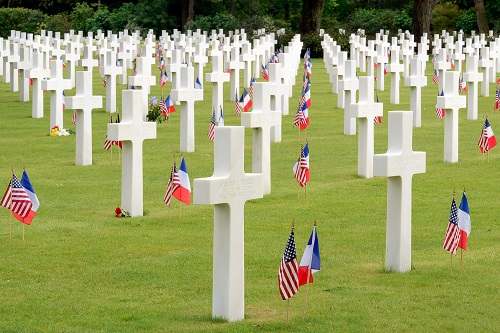
In a radio address broadcast 75 years ago today, Franklin D. Roosevelt asked Almighty God to lead the United States “with our sister Nations into a world unity that will spell a sure peace a peace invulnerable to the schemings of unworthy men, and a peace that will let all of men live in freedom, reaping the just rewards of their honest toil.” Yet as the world looks back at the sacrifice of D-Day, FDR’s vision – which was not new in his day – seems more elusive than ever.
Jordan Ballor, who writes from the Peace Palace at The Hague, goes to the heart of human conflict in a new essay published today at Acton’s Religion & Liberty Transatlantic website. He notes that Dutch theologian and statesman Abraham Kuyper pierced the conceit of lasting peace based on political institutions:
Kuyper observed that the prosperity that had accompanied peace had led humanity astray. In seeking peace apart from the prince of peace, Jesus Christ, “The world has provoked God. The nations have denied God and forgotten him.”
Yet, as Ballor observes, this fanciful notion has endured despite being punctured by two world wars, a global Cold War, and innumerable conflicts from Serbia to Libya:
As Western capitalism triumphed over a defunct and decadent socialism, many thought the price of peace had finally been paid in full. … We ought to know better….
The answer may be found in the conclusion of FDR’s D-Day Prayer: “Thy will be done, Almighty God. Amen.”
Read his whole commentary here.
(Photo credit: The American cemetery at Normandy. Peter K. Burian. CC BY-SA 4.0.)

